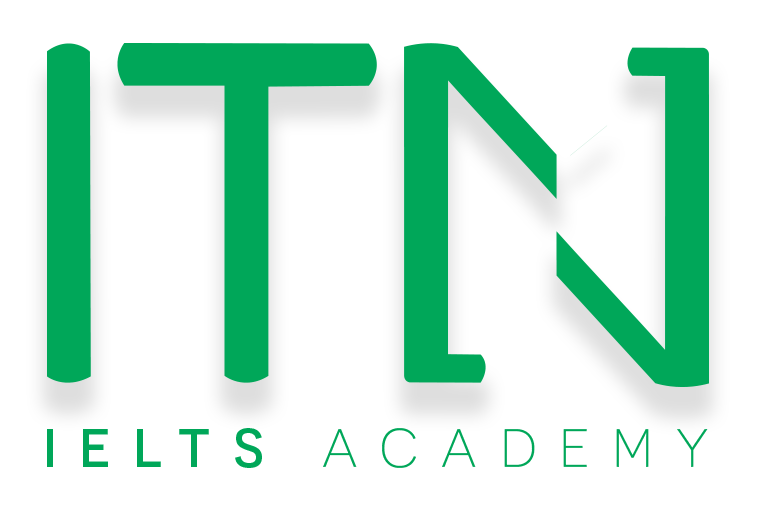
(Bài viết này gồm 2 phần: Lý thuyết Câu bị động và Ứng dụng vào 2 kỹ năng, nếu em nào đã tự tin mình vững nền tảng ngữ pháp thì có thể đọc xuống phần II luôn nha)
#IELTSTrangNguyen #Grammar #PassiveVoice #Writing #Speaking
Câu bị động hay thể bị động là 1 trong những chủ điểm ngữ pháp rất quan trọng trong IELTS dùng khi ta muốn nhấn mạnh vào hành động trong câu, tác nhân gây ra hành động dù là ai hay vật gì cũng không quá quan trọng. Hôm nay, hãy cùng cô tìm hiểu về cấu trúc, cách sử dụng và ứng dụng của thể bị động trong IELTS speaking và IELTS listening sao cho đơn giản và hiệu quả nhé.
I, Cấu trúc tổng quát của câu bị động:
Subject + finite form of to be + Past Participle
(Chủ ngữ + dạng của động từ “to be” + Động từ ở dạng phân từ 2) Example: A letter was written.
Note: Các bạn có thể tham khảo cấu trúc của câu bị động ở cụ thể mỗi thì trong bài ngữ pháp của IELTS Trang Nguyễn với link bên dưới nhé.
https://itn.edu.vnunit-13-cau-bi-dong-trong-tieng-anh/
II, Các cấu trúc bị động đặc biệt:
1.Cấu trúc bị động với chủ ngữ giả “ it”
It + be + adj + (for sb) + to do st
-> It + be + adj + for st to be done
Ví dụ:
– It is easy to make this cake.
-> It is easy for this exercise to be made.
2- Cấu trúc câu bị động với “make”, “let”, “have”, “get”
Ta có:
* Make sb do st -> Make st done (by sb): bắt ai đó làm gì
Ví dụ:
– I made my son clean the floor.
-> I made the floor cleaned by my son.
* Let sb do st -> let st done (by sb): cho phép, để cho ai đó làm gì
Ví dụ:
My father let me cook the dinner yesterday.
-> My father let the dinner cooked by me yesterday.
* Have to do st -> St have to be done: phải làm gì
Ví dụ:
– My mother has to wash the clothes every day.
-> The clothes have to be washed by my mother every day.
* Have sb do st -> have st done (by sb): Nhờ ai đó làm gì
– I have the hairdresser cut my hair every month.
-> I have my hair cut by the hairdresser every month.
* Get sb to do st -> get st done (by sb): Nhờ ai đó làm gì
– She got her father turn on the TV.
-> She got the TV turned on by her father.
3- Bị động kép
→ Khi V1 chia ở các thì hiện tại như hiện tại đơn, hiện tại tiếp diễn, hiện tại hoàn thành.
S1 + V1 + that + S2 + V + …
* TH1: It is + V1-pII that + S2 + V + …
* TH2: Khi V2 chia ở thì hiện tại đơn hoặc tương lai đơn
S2 + is/am/are + V1-pII + to + V2(nguyên thể) +….
* TH3: Khi V2 chia ở thì quá khứ đơn hoặc hiện tại hoàn hành
S2 + is/am/are + V1-pII + to have + V2-PII + …
Ví dụ:
They think that she works very hard.
-> It is thought that she works very hard.
-> She is thought to work very hard.
They think that she worked very hard last year.
-> It is thought that she worked very hard last year.
-> She is thought to have worked very hard last year.
→ Khi V1 chia ở các thì quá khứ (quá khứ đơn, quá khứ tiếp diễn, quá khứ hoàn thành).
S1 + V1 + that + S2 + V + ….
* TH1: It was + V1-pII + that + S2 + V + …
* TH2: Khi V2 chia ở thì quá khứ đơn:
S2 + was/were + V1-pII + to + V2 (nguyên thể) + …
* TH3: Khi V2 chia ở thì quá khứ hoàn thành:
S2 + was/ were + V1-pII + to + have + V2-pII + …
Ví dụ:
People said that she was very kind.
-> It was said that she was very kind.
-> She was said to be very kind.
People said that she had been very kind.
-> It was said that she had been very kind.
-> She was said to have been very kind.
III.Ứng dụng câu bị động vào IELTS speaking and Writing.
- Speaking : Topic “ Animals”
Question 1 : Should animals be used in research?
Well, you know, it is said that the use of animals in scientific research has long been the subject of heated debate. On one hand, it is considered morally wrong to use animals in this way solely for human benefit. Human beings, in fact, have no right to interrupt in animals’ survival.
Question 2: Did you have any pets when you were a child?
Yes, my father got a dog for us as we were child. But, I remember he was so aggressive that we rarely played with it. He used to be kept in our yard for guarding the house. However, later on when he started recognizing us he allowed us to come near him. I remember, my brother actually bonded a lot with him and so when he died it was a true shock for my brother.
- Writing task 2
Question: Genetic engineering is an important issue in society today. Some people think that it will improve people’s lives in many ways. Others feel that it may be a threat to life on earth. Discuss both these views and give your own opinion.
→ It is said that genetic engineering is a key area of modern scientific research, with broad implications for all human societies. While I accept that this field of technology may have its dangers, I believe that the benefits of genetic engineering outweigh the drawbacks.
The negative implications of genetic engineering are often discussed in terms of two key areas, which are food production and the cloning of humans. Genetically modified crops are already being grown, and people are concerned that they may damage whole ecosystems as foods become resistant to diseases and natural predators. But perhaps even more worrying is the possibility that humans could be modified or cloned. Some people imagine a world in which cloned humans are used to fight wars or to provide body part replacements. Although perhaps not a threat to life on earth, the implications of such practices would be unprecedented.
Tham khảo thêm:
- Ứng dụng câu trúc so sánh vào W&S: http://bit.ly/34O0Fea
- Ứng dụng Mạo từ vào W&S: http://bit.ly/2EEyT8k






